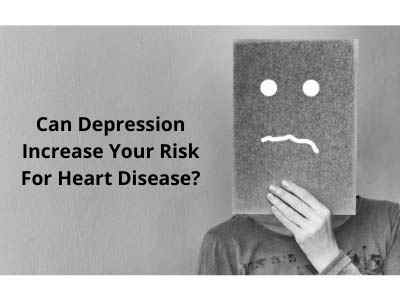It’s not uncommon to be depressed. Most people will struggle with depression at some point in their life. But, can long-term depression have a greater impact on your physical health than you realize? The answer is YES.
According to various studies, There’s increasing data that people who suffer from depression are at higher risk of heart disease.
Heart attack patients are more likely to suffer from depression than those who haven’t had a heart attack. Alternatively, depression can increase your chances of developing heart disease. Here’s why.
The physical effects of depression
While depression has an impact on your lifestyle and habits, it can also have an impact on your physical health. Low-grade inflammation has been associated with it. This inflammation can clog arteries, increase stress hormone production, and make blood clot more easily. So, if someone tells you that your depression is all in your head, ignore them. Depression has a tangible physical effect on your body.
Combating depression and heart disease
Depression and heart disease are two issues that need to be addressed.
Nobody wants to be depressed or have a heart attack. Fortunately, there are steps you may take to help prevent heart disease and depression. Consider the following suggestions:
- Seek treatment if you’re suffering from depression. Consult your doctor or a certified therapist. They can provide you with the necessary drugs, counselling, or other treatments to help you recover.
- Relax and de-stress. Unnecessary commitments should be avoided. Ask for help if needed. Each day, relax or find other ways to de-stress.
- Quit smoking. It is a primary cause of heart disease. When you’re depressed, smoking is a convenient method to “feel better,” but it’s not good for your heart. If you need assistance quitting, talk to your doctor.
- Make sure you get enough rest. Sleep deprivation will exacerbate your depression.
- Stop (or drastically cut) your alcohol consumption. Drinking not only makes you depressed, but it also raises your blood pressure. You’re more likely to have a heart attack or stroke if you have high blood pressure.
- Get your feet moving. Exercising can help you improve the amounts of “feel-good” hormones in your body. Increasing your physical activity will also benefit your heart health.
- Consume foods that will aid in the health of your body. Fruits, vegetables, whole grains, and lean meats are all good choices. It will not only help you with your sadness, but it will also help your body work at its best, preventing heart disease.
Following a heart attack, it’s easy to get depressed. Even if you’ve never had a cardiac condition, your depression may be putting you at risk for it. Taking care of yourself can aid in the treatment of depression as well as heart disease.


